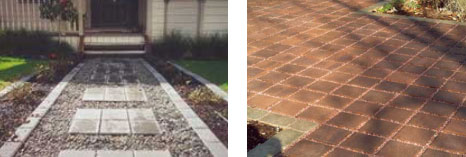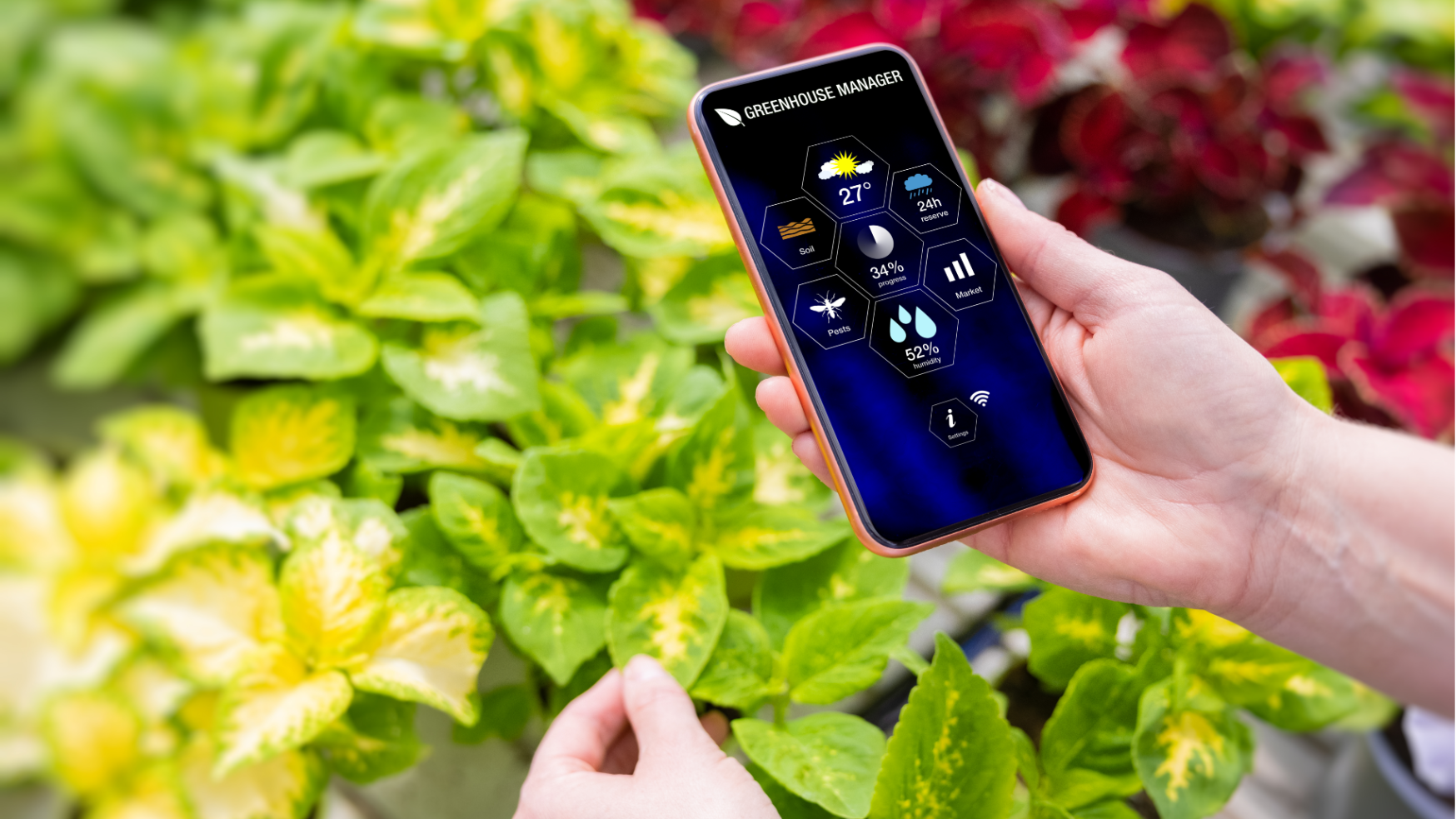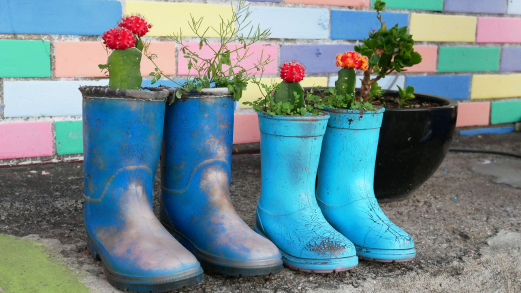
Permeable paths and driveways can help water nearby plants and reduce pollution of waterways with fertilisers and pesticides which run off from non-permeable surfaces. When water hits a non-permeable surface it will follow gravity to the lowest point, normally a drain. The water then flows down through the storm water pipes into channels and rivers and streams. In heavy downpours the speed this may occur can be quite rapid causing flash flooding, erosion and great levels of damage. Thus a wide variety of pollutants including oils and detergents can be washed into the catchments causing a range of environmental problems. Commonly, toxic blooms arise in our rivers and streams after heavy rain events making them unsafe for the native fauna, pets and humans.

Permeable surfaces allow water to permeate (soak into) the soil. The water filters through the substrate where it is retained in the local hydrological cycle. Plants that may be surrounded by paving and vegetation in the adjacent area can then harvest this water.
Many of the pollutants that normally end up in our catchments can be stopped within the confines of the area. On average the levels of pollutants retarded are:
- 80% of sediment
- 60% of phosphorus
- 80% of nitrogen
- 70% of heavy metals
- 98% of oils and greases (when a sand layer is included)
This is achieved not only through mechanical filtration but also through biological processes via microbial decomposition.
The type of material used determines the overall affect of permeable surfaces on water quality. The table below demonstrates.
| Material | Water Quality Effectiveness | Installation Cost | Maintenance Cost |
| Conventional Asphalt / Concrete | Low | Medium | Low |
| Brick (in a loose configuration) | Medium | High | Medium |
| Natural Stone | Medium | High | Medium |
| Gravel | High | Low | Medium |
| Wood Mulch | High | Low | Medium |
| Cobbles | Medium | Low | Medium |
Permeable surface options
When installing a permeable surface it is necessary to consider what the area will be used for and overall appearance.
In infrequently used areas, mulches are some of the best materials available. They come in a wide variety of colours and materials. Anything from barks to pebbles are commonly used. These products are normally inexpensive and do not require any special skills to install. Mulches in general are highly permeable but do require moderate levels of maintenance and topping up from time to time.

Crushed rocks and toppings are slightly less permeable than mulches but can be used for driveways and areas that require a slightly more durable surface. These materials do need to be packed down and require the use of a vibrating plate to ensure that a solid base is achieved. These types of surfaces also need to be topped up from time to time.
Permeable pavers are the latest in options when creating a porous surface. They allow water to pass through voids in the pavers and into the substrate below. These may be made from a range of materials including plastic, pebbles or concrete.

Grass pavers are part of the permeable paving range and allow grass to grow within gaps in the paver. The advantage of this type of paver they allow grass to grow in areas of higher traffic than normally possible. Grass pavers are normally made from plastic or concrete and are not visible once the grass has grown.

Concrete or pebble-based permeable pavers look very similar to normal non-pervious pavers and can be used in many of the same applications as standard pavers. In most cases, both standard and pervious pavers will be used in the same area to reduce costs while achieving similar levels of filtration. Installation techniques for permeable pavers are very similar to that as traditional pavers, when preparing the substrate the only major difference is that fine-free crushed rock should be used to allow for adequate drainage.

Related Articles:
Citizen Science: A Pathway to Gardening Success and Biodiversity Conservation
In recent years, the realm of science has experienced a remarkable transformation, one that invites people from all walks of life to participate…
A Sustainable Gardener’s Guide to Thrifty Gardening
Creating an eco-friendly and cost-effective garden involves more than just nurturing plants; it's about adopting a sustainable approach that…




